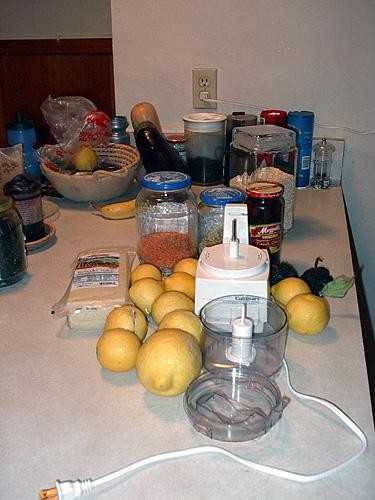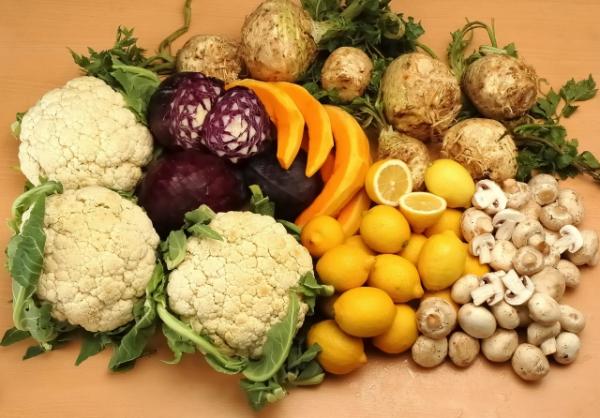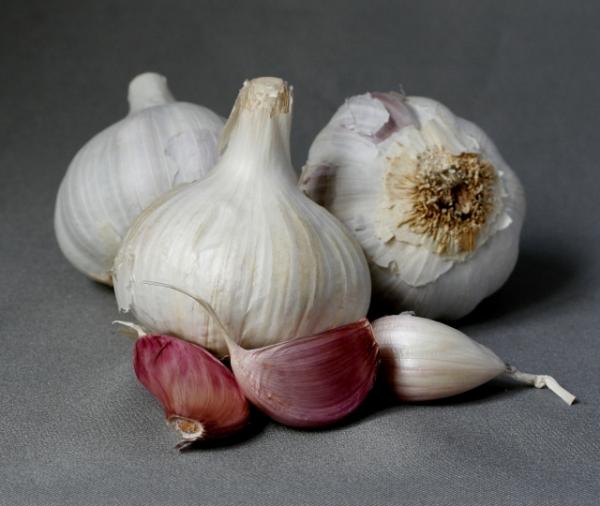Winter wars: boosting your immunity
Pre-emptive strikes against the winter woes will help





[Below is an edited version of a story that first ran on Bikeradar.com on December 7]
Whatever your age, fitness and training schedule we can all feel under attack during the winter months, with endless colds, the dreaded '24-hour bug' or a dose of flu.
As those in the nothern hemisphere enter the coldest part of the year, one of the best ways to counter the winter onslaught is to keep your immune system fighting fit. It's also a good idea to maintain a strong immune system all year round due to the stresses and strains of regular training and racing.
How healthy is your immune system?
* Do you get more than three colds a year?
* Do you find it hard to get rid of infections?
* Do you suffer from joint pains and fatigue?
* Do your glands in your neck, armpits or groin feel tender?
* Is your performance during training or competition failing?
* Do you suffer from an in?ammatory disease such as eczema, asthma or arthritis?
* Do you have antibiotics at least once a year?
* Do you frequently suffer from respiratory symptoms?
* Do you get less than 5-7 hours of sleep each night?
* Do you suffer from allergies to certain foods?
If you answer YES to five or more of these questions, it's time to focus on boosting your immune system.
Various factors can compromise our immunity including poor diet, nutritional deficiency, environmental pollution, stress and, yes, over-training. The good news is there are plenty of natural remedies to help.
1. Stop over-training
Get The Leadout Newsletter
The latest race content, interviews, features, reviews and expert buying guides, direct to your inbox!
While moderate exercise can stimulate your own body's defences (30-40 minutes 3-5 times a week), over-training can actually stress your immune system. More is definitely not better - exercising too much means you're not giving your body adequate time to recover. Early warning signs include illness, injuries and decreased performance. So take at least one day off exercising per week and ease up if you're suffering from ongoing aches and pains.
2. C some benefits
Vitamin C is one of the best anti-infection nutrients available for athletes. Our white blood cells need this powerful vitamin to fight infection, so ensuring adequate intake can be a good move. The recommended daily intake is 90 mg for men and for 75 mg for women. Recent evidence indicates that chronic intake of high doses of supplemental vitamin C can interfere with adaptive responses to exercise and, at high doses, vitamin C can have pro-oxidant effects—so, don’t over do. If you find some supplements a little acidic, look for a non-acid form of vitamin C, e.g., calcium or magnesium ascorbate. If you take too much you'll get loose bowels, which is an indication to reduce the dose.
3. Pick up some cherries
As well as tasting delicious, cherries are packed with nutrients. Their rich red colour comes from anthocyanin, a super anti-inflammatory and antioxidant. They also contain plenty of ellagic acid and vitamin C. While winter may not be the season to get them fresh, there's an excellent
4. Respect the elder
If you want to try something that’s been tested by time, try elderberry. High in antioxidants, it's available as extracts (often sold as Sambucol), throat sprays, capsules, lozenges and drinks. Used in folk medicine for fighting fever and viruses, reducing muscle pain and tackling sore throats, it'll might give your overall immune system a boost.
5. Get into the echi-thump
Probably one of the most widely studied herbs for its purported immune-boosting properties is echinacea. The data on the efficacy of the herb to prevent or treat flu and the cold sore-causing herpes virus are mixed. Normally recommended as soon as symptoms are felt, use it as a short term rather than long-term treatment (up to three months at a time).
It can be taken in the form of capsules or as liquid extract. Although generally safe if taken by mouth, some individuals may experience an allergic reaction to echinacea—particularly individuals who are allergic to plants in the daisy family, e.g., ragweed.
6. Garlic it better
The active ingredient, and the one responsible for garlic's powerful odour, is allicin. Allicin might reduce the risk of upper-respiratory infections and has anti-fungal activity when applied topically. Consider a clove or capsule for a daily dose, but if you want to avoid garlic breath and keep your friends, we recommend you opt for a supplement.
7. Make time for tea
We're not talking about the usual cuppa here. While green tea is a good choice, being rich in antioxidants, there are some other great bug-busting teas. Uncaria tomentosa or cat's claw (so-called because its thorn is shaped like the claw of a cat) is a woody vine that has been used as a traditional medicine for centuries.
It is believed to have anti-inflammatory properties. Cat's claw comes in capsules or as tea. Take two cups a day, sweetened with a little honey according to taste.
8. Support the good guys
Did you know that the largest immune organ in the body is your gut? In fact between 70-80 per cent of all immune cells exist there. Constant use of antibiotics and other medications can wipe out not just the bad bacteria, but the 'good' guys too.
Taking a daily dose of these healthy bugs (probiotics) ideally combined with fibre foods (prebiotics) to feed them is a great long-term immune support. Available in drinks, yoghurts, smoothies or as powdered and capsule forms, ideally look for a supplement supplying at least 1 billion bacteria comprising lactobacilli and bifidobacteria, but for greater benefits take up to 10 billion per day.

9. Do some mineral exploration
Two 'must have' minerals this winter are zinc and selenium. Both are needed for the production of immune cells. A zinc deficiency causes shrinkage of the thymus gland, which is a gland that produces key immune cells called T lymphocytes. These two minerals also required for the production of antioxidant enzymes.
* Top zinc-rich foods include wholegrains, nuts, seeds, poultry, yogurt and shellfish.
* Selenium is notoriously hard to come by in a typical western diet due to the poor levels in soil, but good food sources include Brazil nuts, mushrooms, fish, calf's liver and lean lamb.
10. Get essentially fat
By this we don't mean lots of saturated fatty sauces and creams over the festive season. Instead focus on getting more of the essential fats (EFAs). Adequate intake of both omega 3 and 6 fats ensures a proper balance of the immune system. Because omega 6 fatty acids are prevalent in the typical western diet, focus on increasing your consumption of omega 3 fatty acids (women and men should aim for 1.1 and 1.6 grams per day, respectively), which are found in oily fish (salmon, mackerel, herrings, sardines etc) and some nuts (English walnuts) and seeds (flax seed).
11. De-stress
The festive season can be a particularly stressful time whether you're in training or not. Pumping your body full of adrenaline and cortisol can actually interfere with immune-cell function, leaving you more prone to infections. Take time to chill out... especially during the holidays.
12. Get some rays
Sunlight helps your body make vitamin D, which is important for immune health. In addition, include vitamin D sources in your diet such as dairy products, eggs and oily fish. If the sun does shine, get outside and soak up some of those rays.
13. Look for the rainbow selection
Antioxidants play an important role during the winter months, and some of the best sources are fresh fruit and vegetables, nuts and seeds. By including a wide range of brightly coloured produce in your diet you can maximise the variety of different plant antioxidants such as carotenoids and flavonoids, which can have anti-inflammatory effects. Aim for at least seven portions a day, using them in smoothies as well as meals.
14. Sleep well
Get your nightly eight hours and you'll be boosting your health while you sleep. Not only important for repairing muscles and aiding growth hormone it can also improve the efficiency of your immune system. So dream on...
15. Grow your own remedies
Throw in some herbs when you cook and fight off colds as you eat. Thyme and rosemary both possess antimicrobial properties, so add to dishes (they add great extra flavour to roast meats and casseroles) or make teas by putting the fresh or dried herb in a cup of hot water and leave to infuse for around 10 minutes.
16. Arm yourself with aromatherapy
Essential oils, such as eucalyptus and lavender, are popular in massage blends . Great for easing tired limbs after a long ride.